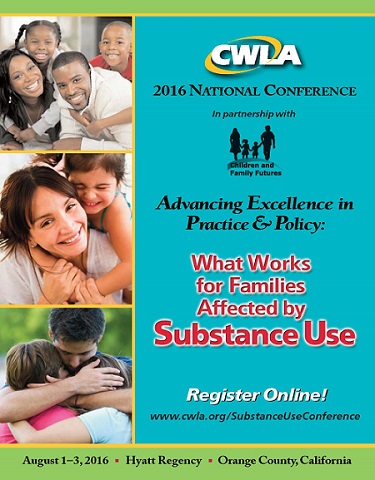CWLA 2016 NATIONAL CONFERENCE:
In partnership with Children and Family Futures
ADVANCING EXCELLENCE IN PRACTICE AND POLICY:
WHAT WORKS FOR FAMILIES AFFECTED BY SUBSTANCE USE
Hyatt Regency, Orange County, California
August 1 – 3, 2016
Click image to view Registration Program
Overview
The 2016 CWLA National Conference is dedicated entirely to the critical topic of substance use and its affects on children, youth, and families involved with child welfare. Substance use has a significant impact on all child welfare practice areas. It is a major reason that children come into the child welfare system and have trouble returning home. The purpose of this conference is to create national awareness through shared knowledge and to promote multidisciplinary collaborative advances in best practices, research, and policy that lead to improving the outcomes and increased well-being for this population of children, youth, and families.
The framework for the conference is grounded in our National Blueprint for Excellence in Child Welfare, which advocates for all children to grow up safely, in loving families and supportive communities, with everything they need to flourish—and with connections to their culture, ethnicity, race, language and sexual identity. This conference will feature evidence-informed and evidence-based programs and practices, emerging best practices, and multidisciplinary collaborative approaches.
Advancing Excellence in Practice and Policy: What Works for Families Affected by Substance Use will bring together a variety of service providers and professionals, including: public and private child welfare and substance abuse treatment providers; juvenile and family court judges and attorneys; law enforcement; prosecutors; probation officers; prevention specialists; maternal and child health agencies; physicians; nurses; researchers and evaluators; educators; tribal communities; community organizations serving youth; children and adult mental health providers; and advocates. The joining of this diverse group of providers, practitioners, researchers, and advocates is focused on advancing excellence in practice and policy by creating a national focus on what is working to improve the outcomes and well-being facing children, youth and families.
Parental substance use disorders are one of the major reasons that children and families become involved with the child welfare system. Watch the following recorded webinars for more information on:
Trust and Safety: How to Manage a Kinship Relationship with Parents with Substance Use Disorders
Check out all the conference details using the navigation menu. For general conference questions or assistance, please contact SubstanceUse@cwla.org.
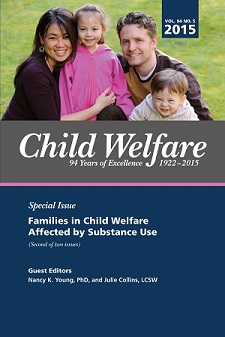
Hot Off the Press
CWLA with the support of the National Center on Substance Abuse and Child Welfare (NCSACW) just released the Child Welfare journal special issue: Families in Child Welfare Affected by Substance Use, Volumes I and II. Be among the first to purchase the two-part set, a must read for anyone interested in the most up-to-date research on programs and practices working for these families. Attend conference workshops by journal authors. Mix and mingle at a special meet & greet. Buy in bulk and share with colleagues. To purchase copies, shop CHILD WELFARE JOURNAL. Don’t wait! Print copies are limited and will be sold on a first come, first served basis.
Thanks to our Conference Sponsors for their generous support!


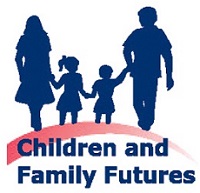

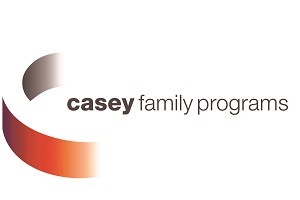

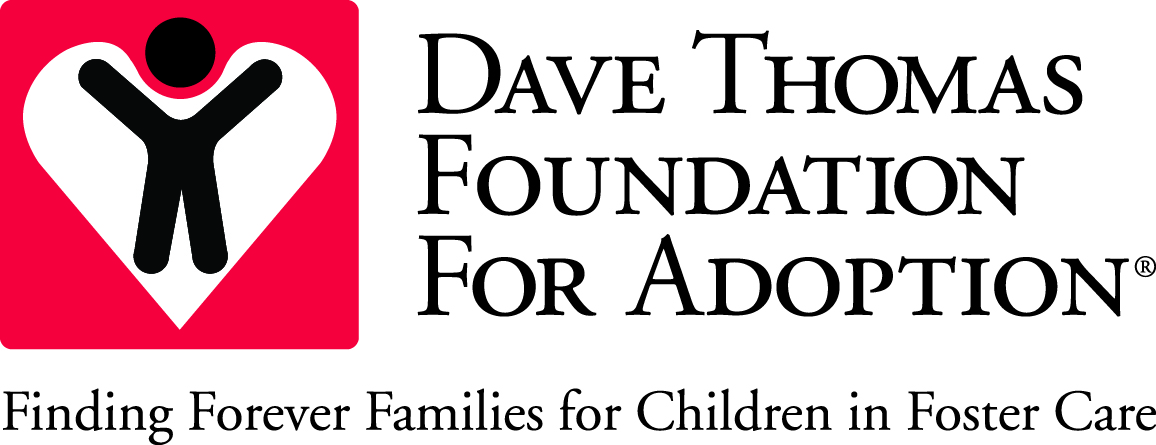
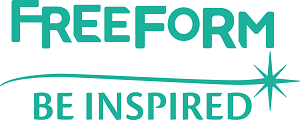
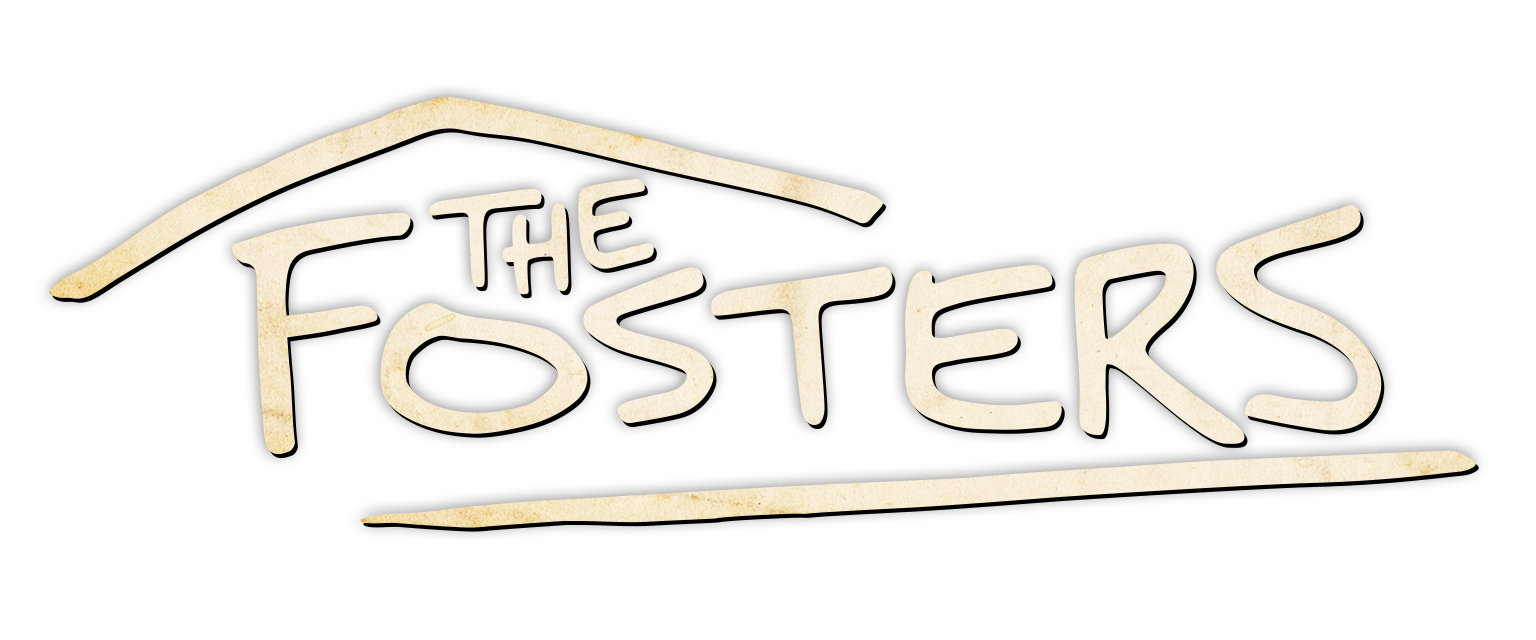
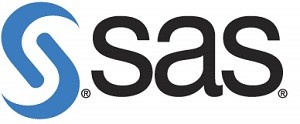

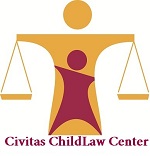
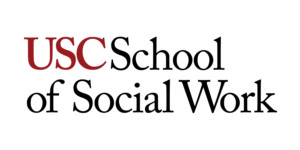



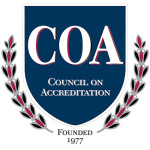





Hotel & Travel
Conference Location and Accommodations

Hyatt Regency Orange County
11999 Harbor Boulevard
Garden Grove, CA 92840
(714) 750-1234
Conference Room Rate: $150 (single/double)

Hotel Reservations
Hotel reservations must be made directly with the hotel. You can make reservations by calling 1-888-421-1442 and requesting the “Child Welfare League of America” room block or online at CONFERENCE HOTEL RESERVATIONS. Room availability and special rates are guaranteed only until July 8, 2016, or until the space is filled.
Travel
The closest airports are John Wayne/Orange County Airport (SNA) – 13 miles and Los Angeles International Airport (LAX) – 35 miles. A map of the area, driving directions, and ground transportation options are available at HYATT REGENCY ORANGE COUNTY.
Hyatt Regency Orange County is a Disneyland® Good Neighbor hotel and offers shuttle transportation to and from the theme parks.
CWLA is pleased to offer conference registrants Disneyland® Resort Theme Park specially-priced, discount tickets. A ticket store link will be shared with attendees after conference registration.
If you have questions or need assistance, please e-mail SubstanceUse@cwla.org.
Sponsorship
Sponsorhip Opportunities
Make a lasting impression on professionals in child welfare, substance abuse treatment, and the courts. Become a conference sponsor… or sponsor a special event, food function, or conference item. Contact us about Conference Sponsorship at SubstanceUse@cwla.org.
PLATINUM SPONSORS
$50,000
• Overall conference sponsor, with four complimentary conference registrations
• Company logo on CWLA conference material and on the CWLA website,cwla.wpengine.com (sponsor will be flagged as a Featured Partner)
• Webinar opportunity
• Special logo and name billing on signage
• Acknowledgement from the podium during a General Session
• Full-page ad space in the conference registration and final programs
• Two “specialty advertisements” in CWLA’s The Networker, our twice-monthly e-brief
• Logo on conference tote bag
• Premium exhibit space
• One-time use of the pre- and post-conference attendee mailing lists
• Tote bag insert
• Logo(s) on the sponsor page in the conference final program
GOLD SPONSORS
$25,000
• Company logo on CWLA conference material and on the CWLA website, cwla.wpengine.com
• Special logo and name billing on signage
• Acknowledgement from the podium during a General Session
• Full-page ad space in the conference registration and final programs
• Exhibit space
• One-time use of the pre- and post-conference attendee mailing lists
• Tote bag insert
• Logo(s) on sponsor page in the conference final program
SILVER SPONSORS
$10,000
• Special logo and name billing on signage
• Acknowledgement from the podium during a General Session
• Half-page ad space in the conference final program
• Discounted exhibit space
• One-time use of the pre- and post-conference attendee mailing lists
• Tote bag insert
• Logo(s) on sponsor page in the conference final program
BRONZE SPONSORS
$5,000
• Special logo and name billing on signage
• Quarter-page ad space in the conference final program
• Tote bag insert
• Logo(s) on sponsor page in the conference final program
POWER-UP CHARGING STATION – SOLD!
$7,500
• Exclusive sponsor of the Charging Station
• Special logo and name billing on signage
• Quarter-page ad space in the conference final program
• Tote bag insert
• Logo(s) on sponsor page in the conference final program
SNACK BREAK
$4,000
• Special logo and name billing on signage
• Tote bag insert
• Logo(s) on sponsor page in the conference final program
CONFERENCE WI-FI – SOLD!
$3,000 (two available)
• Special logo and name billing on signage
• Sponsor logo on Wi-Fi chips distributed to conference attendees with password
• Sponsor logo on Wi-Fi login page
• Logo(s) on sponsor page in the conference final program
MORNING COFFEE BREAK – SOLD!
$3,000 (two available)
• Special logo and name billing on signage
• Logo(s) on sponsor page in the conference final program
FRIENDS OF CWLA
$500+
This sponsorship covers general underwriting expenses that are needed to host this conference. A perfect add-on for conference vendors.
• Special logo and name billing on signage
• Logo(s) on sponsor page in the conference final program
Exhibiting & Advertising
Exhibiting
Meet face-to-face with a variety of service providers and professionals that are the movers and shakers for children and families. Exhibitors will reach CEOs, administrators, judges, researchers and other child and family experts who are eager to explore new thinking and new products. As a bonus, CWLA vendors will receive the pre- and post-conference attendee mailing lists for marketing.
Exhibiting is an easy and affordable way to share your company name and products. The exhibit hall is the hub of the conference being located near the workshops and general sessions. Our popular Bookstore and Recharging Stations are located in the exhibit hall. Booth Bingo and food and beverage functions drive traffic to and through it!
Past exhibitors include software companies, publishers, brokers, trainers, accreditors, member agencies, and other organizations with a message for child and family professionals and leaders. Exhibiting at CWLA is easy, effective, and rewarding.
Interested in sponsoring the overall conference or the Twitter Board, lanyards, Wi-Fi, or a snack break or meal function? Check out our Sponsorship opportunities. We have options for nearly every organization and budget.
Special Events in the Exhibit Hall:
- Coffee Breaks
- Networking Receptions
- Booth Bingo
- Raffles and Giveaways
Exhibit Fees (per 8′ x 10′ space):
- $1550 for Premium Vendors (high traffic space)
- $1295 for General Vendors
- $1095 for CWLA Member Organizations
Includes:
-
- 8′ x 10′ space with standard booth drapery
- 6′ x 2′ draped table
- 2 side chairs
- A complimentary registration for one exhibit staffer with access to all conference sessions, workshops, and meal functions.
Additional exhibit staffers must register at a special rate of $395. - A 7″ x 44″ booth identification sign
- Option to purchase tote bag space ($400)
- List of registrants for pre-conference marketing
- Post-conference attendee mailing list for one-time use
- A link to your website from the CWLA Virtual Exhibit Hall
- Dedicated exhibit hall time, concentrated into three days
- A 30% discount on all conference advertising
Booth Bingo – Back by Demand!
Participating vendors will be asked to stamp bingo cards distributed to attendees at registration. Attendees who complete their cards are eligible to win big prizes. The Grand Prize drawings will be held at the final Exhibit Hall event. We will be raffling off AMEX gift cards. Please help “sponsor” the cards. To contribute $25, select this option when registering.
Tote Bag Inserts – A vendor exclusive!
- Cost: $400
- Limit: one item per bag per vendor
Exhibit Hall Dates and Times: (Subject to change without notice.)
- Set up: Sunday July 31, 2016, Time: 11:00 am
- Dismantle: Wednesday, August 3, 2016, Time: 11:00 am
- Hours of Operation:
- Monday, August 1, 7:30 am – 8:00 pm
- Tuesday, August 2, 7:30 am – 5:30 pm
- Wednesday, August 3, 7:30 am – 11:00 am
Registration and Payment:
- To Exhibit, REGISTER ONLINE. Registering means you agree with the TERMS AND CONDITIONS.
- Payment in full is due with ONLINE REGISTRATION. Pay by credit card or select “Bill Me” option to receive an invoice.
- Space will be assigned on a first-come, first-served basis beginning October 1, 2015.
Other:
- Please review the EXHIBITING GUIDELINES & TERMS.
- Exhibit Hall Floor Plan will be posted soon.
Questions? E-mail exhibits@cwla.org
(Check back often for Exhibit Hall updates.)
Advertising
Maximize your exposure! Advertise in the conference final program.
Benefits
- Full-color advertising!
- Exhibitors receive a 30% discount on all conference advertising.
Deadlines
- Reserve final program ad space by June 2, 2016.
- Submit art by June 10, 2016.
- No cancellations/refunds after June 10, 2016.
- All cancellations must be in writing.
- Exhibitors receive a 30% discount on all conference advertising.
Ad Rates and Options
| Ad Type | Size (Inches) | Exhibitor Cost | Non-Exhibitor Cost |
| Sixth Page | 2.5 x 4.75 | $210 | $350 |
| Quarter Page Vertical | 3.37 x 4.75 | $420 | $675 |
| Half Page Vertical | 3.75 x 9.25 | $840 | $1,300 |
| Half Page Horizontal | 7.50 x 4.75 | $840 | $1,300 |
| Full page (no bleed) | 7.50 x 10.00 | $1,680 | $2,500 |
| Full page (bleed) | 8.75 x 11.25 | $1,680 | $2,500 |
| Back Cover (no bleed) | 7.50 x 7.000 to 8.000 | $2,100 | $3,450 |
| Back Cover (bleed) | 8.75 x 7.25 to 8.25 | $2,100 | $3,450 |
Note: Rates include ad space in the conference final program.
Registration and Payment:
- To Advertise, REGISTER ONLINE. Registering means you agree with the TERMS AND CONDITIONS.
- Payment in full is due with ONLINE REGISTRAITON. Pay by credit card or select “Bill Me” option to receive an invoice.
Other:
- Please review PROGRAM ADVERTISING GUIDELINES & TERMS
Questions? E-mail exhibits@cwla.org
Take-One Exhibiting
Can’t be with us in person, but have a message for conference attendees? Send fliers, brochures and other material for our Take-One tables in the Exhibit Hall and/or near Conference Registration.
Cost: $300.00 per set of items
General Shipping Instructions
- Clearly label all boxes.
- Ship by traceable means.
- Leftover items will not be returned.
- Materials should not arrive earlier than Friday, July 29, 2016.
Registration and Payment
- For Take-One Exhibiting, REGISTER ONLINE. Registering means you agree to the TERMS AND CONDITIONS.
- Payment in full is due with ONLINE REGISTRATION. Pay by credit card or select “Bill Me” option to receive an invoice.
Other:
- Please review the TAKE-ONE EXHIBITING GUIDELINES & TERMS
Questions? E-mail exhibits@cwla.org
National Awards
National Awards
CWLA is accepting nominations for the 2016 Anna Quindlen Award for Excellence in Journalism on Behalf of Children and Families. This award will honor journalists in both print and broadcast who have provided constructive, informative reporting that advances awareness, understanding, and action to meet the needs of children and families who are vulnerable.
The Anna Quindlen Award will be presented at the CWLA 2016 National Conference, Advancing Excellence in Practice and Policy: What Works for Families Affected by Substance Use. The CWLA Awards program is designed to encourage excellence and innovation in serving children and families who are vulnerable and to acknowledge the various stakeholder groups that are committed to advancing excellence in child welfare.
For 2016, we are specifically interested in recognizing excellence in reporting that highlights the impact that substance use has on families and children who have come in contact with the child welfare system.
As always, we need the active involvement of our member agencies to identify the exceptional individuals and organizations that positively impact your work, deserve this national level recognition, and will serve as a role model to others.
In order to allow time for completion of the nominating process and so that successful nominees have time to plan to attend the conference and receive their recognition in-person, nominations should be submitted no later than March 16, 2016.
Submit a completed nomination form and statement addressing how the nominee exhibits the awards overall vision and description. Please submit three to four electronic photos that can be used in the awards presentation, should the nominee be selected. Also include articles, editorials, columns, videos, etc. in support of the nomination. Links to online articles and videos are acceptable.
Nominations must include a completed NOMINATION FORM and supporting materials, and be received by March 16, 2016. Electronic submissions are required. Email nominations to Cassaundra Rainey, VP for Member Services and Conferences, crainey@cwla.org.
CWLA is pleased to partner with Children and Family Futures (CFF) for our 2016 National Conference Advancing Excellence in Practice and Policy: What Works for Families Affected by Substance Use. In recognition of CFF’s 20 Year Anniversary, they are honoring outstanding individuals whose work includes cross‐systems collaborative practice to effectively address substance use disorders among parents, children and families involved in child welfare, substance use treatment and court systems. CFF’s Collaborative Excellence Awards honor individuals who have successfully created, enhanced, promoted and implemented organizational change to better serve and improve the outcomes for this population of parents, children and families.
Nomination Criteria:
- Promotes effective relationships among the child welfare, substance use treatment and court systems (as applicable) over a sustained period of time
- Demonstrates leadership in facilitating collaborative processes at multiple levels
- Effectively promotes systems improvement at the local, state, tribal, and federal levels
- Exercises professional and personal strengths that advance the field of systems collaboration through innovative strategies
The Collaborative Excellence Awards will be presented at the 2016 National Conference. Nominations must be received no later than March 18, 2016. Submit to Kelly Jones by e-mail (kjones@cffutures.org) or fax (714-505‐3626) a completed NOMINATION FORM along with:
- A summary of the nominee’s contributions (maximum three single‐spaced pages)
- Give clear examples of the nominee’s activities that improved collaboration among the child welfare, substance use treatment and court systems (as applicable).
- Give clear examples of the leadership demonstrated by the nominee to improve outcomes for these families.
- Describe the personal and professional attributes that uniquely characterize the nominee as he or she has successfully formed collaborative relationships across service systems.
- Describe how the nominee has improved the delivery of services to families, groups, or communities.
- One letter from a representative of a successful collaboration that confirms the nominee’s contributions (maximum two single‐spaced pages)
- The nominee’s curriculum vitae or resume
Workshops
Workshops A
Monday, August 1
11:00am – 12:30pm
A1 – Working Across Systems to Improve the Outcomes of Child Welfare Involved Parents with Substance Use Disorders
This workshop will present the enhanced systems improvement and integration efforts in Florida and Pennsylvania. Although the child welfare delivery systems are structured differently, each jurisdiction has faced similar challenges with maintaining a fully integrated model that incorporates both substance abuse and child welfare services. The presenters will outline the process by which they improved intra- and inter-agency collaboration and developed cross-systems values, principles, goals and objectives to better serve susbance affected families. The presenters will also describe how their agency increased early identification of substance use disorders and improved timely access to treatment.
Presenter(s): Chereese Phillips and Jacki Hoover, Allegheny County Office of Children, Youth and Families, Pittsburgh, PA; Donna Rininger, Peace River Center, Bartow, FL; and Tewabech Genet Stewart, Heartland for Children, Inc., Bartow, FL
A2 – Statewide System Reform: The New York Experience
New York is implementing comprehensive system reform with support from the Office of Juvenile Justice & Delinquency Prevention to strengthen existing Family Treatment Courts and infuse the model’s most effective practices into every neglect/abuse part where substance use disorder is suspected or discovered within a family unit. The presenters will discuss the design of this project, including collaboration across the court, child welfare, and substance abuse treatment systems, the committee structure, peer-to-peer learning, pilot testing the infusion model, obtaining judicial response to the model, performance indicators, and data management including discussion of cross-system integration and performance measurement.
Presenter(s): Christine Kiesel, Child Welfare Court Improvement Project, Utica, NY; Steve Hanson, New York State Office of Alcoholism and Substance Abuse Services, Utica, NY; and Betsy Stevens, New York State Office of Children and Family Services, Rensselaer, NY
A3 – Prescription Pain Killers – The Latest (and Greatest) Threat to Child Welfare
The abuse of prescription drugs continues to rise across the United States, and the impact on child welfare is great for both children and those parents who abuse. Recent national data shows parental alcohol or drug abuse was the reason for removal of almost 31% of all children placed in out-of-home care in 2012 and has continued to rise. SAS will share how prescription drug monitoring programs can be used to change the way systems address the problem and provide for better informed decision making and innovative practice solutions such as Direction for Living’s innovative program approach to this population.
Presenter(s): Will Jones and Shaun Barry, SAS, Waxhaw, NC; and April Lott, Directions for Living, Clearwater, FL
A4 – The Importance of Relationships in Family Drug Court: Enhancing Well-Being for Children and Familes Using a Team Approach
Project Safe Start Nebraska, funded by SAMHSA from 2011-2014, successfully enhanced services for young children in Family Drug Court in Lancaster County. Subsequent to this grant, Judge Heideman and the Family Drug Court team developed an infusion model of Family Drug Court that incorporates the principles of Project Safe Start, but includes all substance abuse cases. Participants receive evidence based practices for substance abuse and early childhood mental health and trauma. This court focuses on relationships. The court practice and process works on all relationships including those between team and parent, parents and children, and the court and the team.
Presenter(s): Jennie Cole-Mossman, Nebraska Resource Project for Vulnerable Young Children, Lincoln, NE; Hon. Roger Heideman, Lancaster County Juvenile Court, Lincoln, NE; Jamie Bahm, Nebraska Deparment of Health and Human Services, Lincoln, NE
A5 – Fetal Alcohol Spectrum Disorders: Collaboration of National, State and Community Groups in Lifespan Prevention and Interventions
This workshop will explore national and state efforts to coordinate prevention and intervention policies and programs related to children, youth in transition, and adults who have fetal alcohol spectrum disorders. The state of Michigan’s efforts will be examined, in particular the collaboration between the Substance Abuse and Mental Health Services Administrations (SAMHSA), Fetal Alcohol Spectrum Disorders Center for Excellence, the Michigan State FASD Coordinator, and the Michigan FASD Task Force in these efforts.
Presenter(s): Ann Carrellas, Wayne State University, Developmental Disabilities Institute, Detroit, MI
A6 – Preventing Neglect, Abuse and Abandonment Among Families Impacted by HIV and Substance Abuse: A Multi-Disciplinary Approach Infused with Trauma-Informed Practices
Substance use is a well-known risk factor of acquiring HIV, yet largely because the epidemic focuses on men who have sex with men, the children of heterosexual HIV women have largely been forgotten. Families First is a federally funded program to reduce child abuse and neglect among families impacted by HIV. Using an integrated, trauma-informed approach, we have been able to increase the well-being of families by addressing the family system in care. Workshop attendees will learn about how to engage and retain clients that may have been resistant to substance treatment in the past, or fearful of disclosure due to child welfare issues.
Presenter(s): Jennifer Lewis, University of Southern California School of Social Work, San Diego, CA; Amelia Roeschlein, Kristyn Pellecchia, Nicole Pepper, and Karina Valdez, University of California San Diego School of Medicene, San Diego, CA
A7 – Developing a Program for Substance-Exposed Newborns and Their Families: Lessons From Project NESST (Newborns Exposed to Substances: Support and Therapy)
Although concern about substance misuse in pregnancy and infants born substance-exposed has grown considerably in recent years, few programs have been developed that address the complex needs of this vulnerable population. This workshop describes the process of developing Project NESST (Newborns Exposed to Substances: Support and Therapy) from needs assessment to program services. We describe an interview study undertaken to understand the lived experience and treatment needs faced by mothers of substance-exposed newborns. We highlight select findings and trace how lessons learned have informed our understanding of engagement, staffing, reflective supervision and training.
Presenter(s): Eda Spielman and Amy Sommer, Jewish Family and Children’s Service, Waltham, MA
A8 – Child Welfare Policy in Washington DC: A Look to the Fall & Next Administration
By August, we will have a clearer idea of what is possible in regard to federal legislation for 2016. Congress will be out on recess with just a few weeks left before the election. We will also begin to see the shape of what is possible in a new Presidential Administration and the next Congress. This workshop session will examine action on child welfare, substance abuse legislation, mental health services and other children’s policy. The CWLA Government Affairs Department will bring you the latest.
Presenter(s): John Sciamanna, CWLA, Washington, DC
A9 – Supervising with Substance
This workshop addresses the interface between supervision and substance involvement by staff that affects the work environment. The importance of recognizing changes in staff personality presentation, productivity, and being sensitive to other red flags that may indicate the presence of a substance use issue are presented. The role of supervisors in assuring services are delivered commensurate with high ethical standards includes the ability to recognize and confront these issues and be knowledgeable of available support services. Strategies to address substance use issues in the workplace will be demonstrated by incorporating real-world examples from the field. Learning methods include role play, modeling, and observation.
Presenter(s): Marcus Stallworth, CWLA, Naugatuck, CT; Charlene Ingram, CWLA, Erial, NJ; Donna D, Petras, CWLA Lincolnshire, IL
Workshops B
Monday, August 1
2:00 pm – 3:30 pm
B1 – Partnering with Courts to Better Address Substance Use in Dependency and Neglect Cases
Partnering with courts to improve the way dependency cases with substance use are handled can be challenging at the state and local levels. This session will provide attendees with an opportunity to share with colleagues and build an understanding of: court programs and multi-disciplinary approaches that better address substance use, including a new initiative known as the Dependency and Neglect System Reform Program; effectively engaging key judicial leaders to better address substance use; and strategies for building partnerships with the Court Improvement Program and Problem Solving Court Program to better address substance use.
Presenter(s): Sarah Felsen, Colorado Judicial Department & Colorado Department of Human Services, Denver, CO; Gretchen Russo, Colorado Department of Human Services,Denver, CO; William DeLisio and Brenidy Rice, Colorado Judicial Department, Denver, CO
B2 – The Mommies Program: A Gender-Responsive Program for Pregnant and Parenting Women with Substance Use Disorders
The Mommies Program is an inter-professional, multi-agency, collaborative partnership between Texas state health department, county hospital system and the local mental health authority. Key components of the Mommies Program include medication assisted treatment, mental health services, primary care, family and individual counseling, as well as education focused on childbirth and parenting, trauma recovery, and life skills. All services are offered in one centralized location with transportation and childcare provided. More than 1,000 families have been served by this program since 2007. As a result, infant hospital length of stay for neonatal abstinence syndrome has decreased by 33%.
Presenter(s): Lisa Cleveland, The University of Texas Health Science Center at San Antonio, San Antonio, TX; Briseida (Bee) Courtois, The Center for Health Care Services, San Antonio, TX; Lisa Ramirez, Texas Department of State Health Services, Austin, TX; Susan M. Douglass (Ret.), University Health System (Ret.), San Antonio, TX
B3 – The Connecticut Family Stability Project: Financing a Service for Families Impacted by Substance Use
In a challenging fiscal climate, Connecticut strategized to implement a Social Impact Bond/Pay for Success financing mechanism to address the unmet needs of families who are impacted by substance use and involved in the child welfare system by delivering Family Based Recovery, a promising intervention designed to eliminate parental substance use and promote parent-child attachment with children aged 0-6. This workshop offers step by step guidance and concrete strategies on how to implement this new and innovative funding vehicle to deliver and rigorously evaluate a promising practice.
Presenter(s): Mary Painter and Elizabeth Duryea, Connecticut Department of Children & Families, Hartford, CT; Gloria Gong, Harvard University Social Impact Bond Lab, Cambridge, MA; Casey Littlefield Social Finance, Boston, MA; and Karen Hanson, Yale Child Study Center, New Haven, CT
B4 – A Team Approach to Trauma-Informed Care with Substance Use, Abuse and Addiction
This training examines substance use, abuse and treatment from a collaborative team approach. Presenters will engage participants to explore the following concepts: the relationships between trauma and substance abuse; understanding roads to recovery and enhancing protective factors; substance use and abuse as it relates to our brains, exploring the neurological relationship of addiction. Presenters will also discuss how to utilize a collaborative approach to helping youth in care obtain community treatment and collaborative care.
Presenter(s): Stan Waddell, Cenpatico, Lubbock, TX
B5 – Increasing Family Treatment Drug Courts Outomces: Development of an Pre-Dependency Drug Court and Enhanced Family Services
The Early Intervention Family Drug Court (EIFDC) is Sacramento County’s innovative approach to intervene with intensive Child Welfare, alcohol and other drug and Court services before removal of a child from the home becomes necessary. Children in Focus (CIF) is an enhancement to EIFDC services designed to re-establish positive parent/ child interaction and to improve family functioning – issues that are not frequently addressed by Family Treatment Drug Courts. Collectively, these programs target pre-dependency families to support parental and overall family functioning and aim to keep families intact so more intensive interventions are unnecessary.
Presenter(s): Barbara Oleachea, Sacramento County Child Protective Services, Sacramento, CA; Sharon Di Pirro-Beard, Sacramento County Alcohol and Drug Services, Sacramento, CA; and Dara Nix, Children and Family Futures, Lake Forest, CA
B6 – Implementing, Evaluating and Sustaining a Parent Mentor Program: Lessons Learned
This workshop provides an overview of the Mentor Parent Program of Dependency Advocacy Center, and describes the structure, findings, and impact of a successful university-community partnership designed to evaluate the Mentor Parent Program. Presenters will outline core elements of the pioneering Mentor Parent Program, which has been successful in quickly and effectively engaging parents who are grappling with drug addiction and attempting to reunify with their children in Santa Clara County’s family drug court, Dependency Wellness Court. Mentor Parenting models are considered a promising practice, and data from the local evaluation affirm the utility of the Mentor model as a factor for increasing reunification.
Presenter(s): Laurie Drabble, San Jose State University School of Social Work, San Jose, CA; and Hilary Kushins and Dave Shuster, Dependency Advocacy Center, San Jose, CA
B7 – From Script to Choices- Empowering Children Impacted by Familial Addiction
From Script to Choices offers an opportunity to learn about the impact of familial trauma on children being raised in addictive families. Dr. Claudia Black, an internationally recognized presenter and clinician, will share her expertise in working with children and families for the past forty years. This workshop will also offer an opportunity to learn about an innovative mentoring and support program for children and teens who have been impacted by the addiction of a family member.
Presenter(s): Claudia Black, Claudia Black Young Adult Center at The Meadows, Bainbridge Island, WA; Danielle Lowe, Shields For Families Inc., Compton, CA; and Brian J. Maus, The Moyer Foundation, Philadelphia, PA
B8 – Even With a Substance Abuse History, Fathers Play a Key Role in the Lives of Their Children
This workshop introduces Project Fatherhood, an innovative, theoretically sound, evidence-informed model of practice to reduce risks to children by engaging fathers in their care and development with a special focus on substance abuse. Participants will learn: 1) to identify and overcome individual and systemic barriers that prevent father-child engagement; 2) methods of ensuring fathers are included in child welfare systems, 3) the long term effects father involvement has on a child, and 4) strategies to create and/or replicate the program in diverse communities: substance abuse, military/veteran, LGBT, foster care, Children of Incarcerated Parents and homeless families.
Presenter(s): Alan-Michael Graves and Anthony Young, Children’s Institutue, Inc., Los Angeles, CA
Workshops C
Monday, August 1
3:45 pm – 5:15 pm
C1 – Children Affected by Substance Abuse (CASA): A Cross-Sector, Community Collaboration Model
Children Affected by Substance Abuse (CASA) is an evidence-informed, multi-sector, community partnership model underpinned by 10 service principles and developed for child welfare involved children and families where parental substance use is the reason for service. This multi-pronged service delivery model (class and web-training, case consultations and collaborative case assessments) is described along with evaluation findings related to whether there was improved service outcomes. The evaluation methods included a review 2014 cases over 15 months, a comparative standardized review of cases, and worker feedback. The evidence-informed rationale for using a community partnership mode is discussed along with suggested implications for practice.
Presenter(s): Deborah Goodma and Carolyn Ussher, Children’s Aid Society of Toronto, Toronto, ON
C2 – Impact from Infancy: Shaping a Coordinated Child Welfare System Response for Maltreated Children Birth to Five
Children from birth to five years of age in the child welfare and court systems have unique needs that must be addressed to ensure their safety and promote permanency and well-being. Impact from Infancy is a model for promoting early childhood best practices to the child welfare community such as trauma informed interventions for parents, substance abuse treatment integrated with parenting support, and attachment focused treatment and services for parents and children.
Presenter(s): Carrie Strovers, Project Harmony, Omaha, NE; and Hon. Douglas F. Johnson, Separate Juvenile Court of Douglas County, Omaha, NE
C3 – Implementing Evidence-Based Practices Across Systems and Settings to Enhance Services for Substance-Abuse Effected Families: Process, Outcomes, and Cost Savings
This workshop describes two evidence-based implementations for prevention of child maltreatment and children’s behavioral health problems in families affected with substance abuse: Strengthening Families Program and Celebrating Families. Included will be the history, content, implementation, research outcomes and cost benefits. Each implementation was undertaken with different populations, and both will be presented. One implementation uses a low cost, innovative SFP 7-17 DVD video technology to deliver SFP; the other uses a family drug court service model. Both implementations have important implications for stakeholders seeking to enhance outcomes for substance abuse affected families through the use of evidence based programming.
Presenter(s): Jody Brook and Margaret Lloyd, University of Kansas School of Social Welfare, Overland Park, KS; Karol L. Kumpfer, University of Utah, Salt Lake City, UT; and Jaynie Brown, Strengthening Families Foundation, Salt Lake City, UT
C5 – Project Connect: Keeping Children Safe by Strengthening Substance Affected Families
This workshop will describe an intensive, home based practice model that works with high-risk families who are affected by parental substance abuse and involved in the child welfare system. The presenters will describe the program model and practice approaches that have been found most effective when working with diverse families on addiction, mental and physical health needs, parenting, domestic violence and child permanency and well-being. The workshop will also focus on engaging systems, communities and the family in order to influence positive outcomes for children and their families.
Presenter(s): Valentina Laprade and Alycia Zagaglia, Children’s Friend, Providence, RI
C6 – Family-Based Recovery: An Innovative In-Home Substance Abuse Treatment Model for Families with Young Children
Family-based in-home treatment can effectively meet the needs of mothers and fathers struggling with the dual challenges of substance abuse recovery and parenting infants and toddlers. This presentation describes one program, Family-Based Recovery (FBR), which integrates substance abuse treatment for parents and infant mental health intervention with the goal of preventing child maltreatment and family disruption. Outcome data suggest that FBR is a promising model. Program design, implementation, and results are provided. In addition, the presentation will focus on lessons learned and enhancements to the model over its eight years.
Presenter(s): Karen E. Hanson and Dale H. Saul, Yale Child Study Center, New Haven, CT; and Jeffrey J. Vanderploeg, J.P. Behavioral Health Consulting, West Hartford, CT
C7 – Kinship Navigation Services: Diverting Youth Affected by Substance Abuse from Child Welfare to Kinship Care
This workshop will be co-facilitated by the Director and Evaluator of the Arizona Kinship Support Services. The presenters will review how kinship navigation services are utilized by kinship caregivers caring for children affected by family substance abuse. These children are involved with the Arizona Department of Child Safety (DCS) or were placed in kinship care informally. Presenters will discuss cost savings to DCS by diverting older youth from foster/congregate care and keeping them in stable kinship care. Attendees will learn how they can apply this kinship navigation model and cost savings methodology to their own programs.
Presenter(s): Julie Treinen and Candy Espino, Arizona’s Children Association, Tucson, AZ; and Michele Schmidt, LeCroy & Milligan Associates, Tucson, AZ
C8 – Recovering Families: A Tool for Parents in Recovery and Their Children
“Recovering Families” is a workbook designed to help parents in recovery balance the demands of both recovery and children, prevent relapse and understand the impact of addiction and recovery on children. It incorporates twelve-step philosophy and slogans with research-supported parent education materials. This workshop will examine the development of the program and how it is being used across Pennsylvania. Attendees will receive sample pages and participate in sample activities from the workbook.
Presenter(s): Beth Bitler, Pennsylvania Family Support Alliance, Harrisburg, PA
C9 – Successful Substance Abuse and Therapeutic Program Elements for Young Children and Their Families in Child Welfare: The Sobriety Treatment and Recovery Teams Program
This workshop will provide a national perspective on young children’s involvement in child welfare, including for family substance abuse, and the landscape of programs designed to meet their needs. The Sobriety Treatment and Recovery Teams (START) model, an evidence-supported CPS intervention for substance use and child maltreatment, will be highlighted. START strategies will be described, as well as implementation lessons learned and outcomes in a rural Appalachian county with high poverty, nonmedical prescription drug use, and child maltreatment. Despite a limited infrastructure at baseline, children served by START had lower recurrence and re-entry rates compared with a matched control group.
Presenter(s): Martin T. Hall, Kent School of Social Work, University of Louisville, Louisville, KY; Lynn R. Posze, Tina M. Willauer, Jeanelle S. Sears, and Ruth A. Huebner (Ret.), Kentucky Department for Community Based Services, Louisville, KY; and Erin Maher, Casey Family Programs, Seattle, WA
C10 – An Intensive Case Management Approach for Addressing Co-Occurring Substance Abuse and Trauma Exposure among Urban Native Families
This workshop session explores the evidence documenting the link between trauma exposure and substance abuse in Native families involved with child welfare, and describes an Intensive Case Management (ICM) approach that is comprehensive, culturally responsive, and flexible. Trauma in Native families may involve not only adult experiences of loss and violence, but also childhood abuse, historical trauma, and inter-generational transmission. Case practice, outcomes, and case examples from an urban Native family service agency’s ICM model are presented, with suggestions for modifications for non-Native agencies and case workers.
Presenter(s): Nancy Lucero and Marian Bussey, Butler Institute for Families, Graduate School of Social Work, University of Denver, Denver, CO
C11 – Substance Exposed Infants: New Strategies for Preparing Resource Parents Through Integration of Online Learning and In-person Group Sessions
The health and medical needs of substance exposed infants can be perplexing and serious. Providing accurate and timely information to caregivers that sheds light on this complex subject and provides useful strategies for parenting this population as well as valuable tips for working with the professional team is of utmost importance. This workshop demonstrates how the preparation of caregivers (foster, adoptive, and kinship) to work with infants who have been substance exposed can be strengthened through the integration of self-pace, interactive, online learning and in-person sessions. A major benefit is increasing the quality and standardization of training through online courses that feature innovative, cost-effective strategies with proven effective techniques, interactive vignettes, and examples from the field. Strategies for integrating the online content with in-person sessions that focus on skill building and mutual assessment of caregivers’ ability, resources, and willingness to care for this population will be presented. Demonstrations will focus on substance exposed infants.
Presenter(s): Lee White, Northwest Media and FosterParentCollege.com, Eugene, OR; Donna D. Petras, CWLA, Lincolnshire, IL; and Eileen Mayers Pasztor, California State University, Long Beach and CWLA, Manhattan Beach, CA
Workshops D
Tuesday, August 2
8:30am – 10:00am
D1 – Making It Work Without a Family Drug Court: Connecticut’s Approach to Parental Substance Abuse in the Child Welfare System
Connecticut’s child welfare, substance abuse and judicial systems collaborated to develop the Recovery Specialist Voluntary Program (RSVP) as an alternative to family drug court. Presenters will show how inter-agency collaboration, interoperability, information-sharing, and use of data for program development and performance monitoring has effectuated systemic changes in policy and practice to deliver an effective recovery-oriented program for parents whose children have been removed by the court due to caregivers’ substance abuse. Presenters will discuss collaboration efforts, factors affecting development of RSVP, system changes, program participants, parental and child welfare outcomes, as well as the challenges of conducting a cost evaluation.
Presenter(s): Jane A. Ungemack, University of Connecticut School of Medicine, Farmington, CT; Christine Lau, Connecticut Department of Children and Families, Farmington, CT; Janet M. Storey, Connecticut Department of Mental Health and Addiction Services, Hartfoprd, CT; Samuel Moy, Advanced Behavioral Health, Middletown, CT; Kathryn Parr, University of Connecticut School of Social Work, Hartford, CT; and Bernadette Conway, State of Connecticut Judicial Branch, New Haven, CT
D2 – Cross-System Strategies for Engaging and Retaining Families Involved in the Child Welfare System and Affected by Substance Use Disorders
Regional Partnership Grant (RPG) recipients have implemented a variety of cross-system strategies in order to engage and retain clients, address cross-system communication, and successfully implement family-centered treatment. This workshop will share lessons learned along the way and identify specific strategies that worked within a cross-system team. This workshop features two RPG recipients – Summit County Children Services and Helen Ross McNabb Center. Both grantees faced implementation challenges and through strategies targeting both clients and staff, as well as partners, they have improved implementation and influenced positive outcomes for parents and children.
Presenter(s): Sarah Long, Helen Ross McNabb Center, Knoxville, TN; and Beth Kinney and Kevin E. Brown, Summit County Children Services, Knoxville, OH
D3 – Effective Collaboration: Lessons from the Regional Partnership Grant Program
Research and practical experience has long demonstrated the prevalence of parental substance use disorders among families in the child welfare system. Historically, a lack of coordination and collaboration has hindered the ability of child welfare, substance abuse treatment, and family/dependency court systems to support these families. As child welfare involved families have complex needs, a coordinated effort between systems is needed. This presentation will share findings and lessons learned from the Regional Partnership Grant (RPG) program. The RPG program is the Federal government’s largest single investment focused specifically on the lives of children and families at significantly high risk for negative outcomes related to substance use and child abuse or neglect. This session will enable participants to better understand the relationships between adult client characteristics, treatment participation, and child welfare outcomes, services elements that appear to have a positive impact on outcomes, and strategies that communities employed to develop and sustain collaborative treatment and child welfare systems.
Presenter(s): Ken DeCerchio, National Center on Substance Abuse and Child Welfare, Lake Forest, CA and Elaine Voces Stedt, Children’s Bureau Office on Child Abuse and Neglect, Washington, DC
D4 – Improving Family Outcomes Through Strategic Partnerships to Implement Supportive Housing and Wraparound Services
The New Jersey Department of Children and Families, the Corporation for Supportive Housing, and Family Connections will present their partnership to establish a ‘housing first’ initiative based on the Keeping Families Together (KFT) model which offers wraparound services for families who are challenged by substance use and/or mental health disorders, lack stable housing, and are at-risk of losing custody or not achieving reunification. Attendees will learn how to establish a trauma-informed supportive housing practice model designed to meet the specific needs of child welfare-involved families, and learn how KFT specifically aligns with the CWLA Standards of Excellence for Child Welfare Services.
Presenter(s): Mollie Greene, New Jersey Department of Children and Families, Trenton, NJ; Alison Harte, Corporation for Supportive Housing, Trenton, NJ; and Kelly Sachter and Krista Zuccheri, Family Connections, Inc., East Orange, NJ
D5 – Specialty Court Pot Luck: How Effective Multi-Disciplinary Teams Improve the Lives of Children in the Legal System
This workshop will identify and outline how effective implementation of specialty court models to traditional court rooms can increase the efficacy of legal interventions involving children and families. Bexar County Children’s Court, utilizing Family Drug Court as a template, achieved a reduction of nearly 30 percent of case filings for removal of children, a similar reduction in court hearings, nearly 3,000 less court orders, and saved nearly half a million dollar during one fiscal year. Presenters will pay special attention to how utilizing multi-disciplinary teams positively impacts the efficacy of the courtroom, and opens the doors for courts to work with providers for the sake of the children involved in complex cases.
Presenter(s): Hon. Peter Sakai, Barbara Schafer, Julie G. Thornton, Kenneth Lowe, and Kimberly Burley, Bexar County Civil District Courts, San Antonio, TX
D6 – What Happens After Treatment and Recovery Programs End: A Study of Long-Term Outcomes for Women in Recovery
In this workshop, Wilder Research will share findings from the Women’s Recovery Services initiative, a 5-year project that funds 10 recovery programs across Minnesota targeting pregnant and/or parenting women with substance use disorders, and their children. Both short- and long-term outcomes will be shared, including information gathered from the women via telephone interviews 6- and 12-months after leaving recovery programs. The workshop will also highlight the study methodology, what works for women in recovery as well as the challenges involved after leaving treatment/recovery programs, and incorporate the voice and direct experiences of women who have participated in the programs.
Presenter(s): Rebecca Sales, Jackie Aman, Michelle Gerrard, Monica Idzelis Rothe, Stephanie Nelson-Dusek,and Darcie Thomsen, Wilder Research, St. Paul, MN;
D7 – Substance Use: Prenatal and Postnatal Services in Family Preservation
Saint Francis Community Services developed a program to provide a gender responsive and trauma informed approach to treatment of pregnant women and girls who are abusing substances. The program focuses on systems change with a caring, compassionate and empowering therapeutic environment enabling the family to create a healthy home. The goal is to help the mother stop using substances while pregnant, to provide for a substance free baby at the time of birth, and to then be able to better attend to the baby’s needs once born.
Presenter(s): Susan Montague and Ruth Kemper, Saint Francis Community Services, Salina, KS
D8 – Understanding and Treating Addicted Youth
Using the context of adolescent development, this presentation will help providers and families to better understand how to work with addicted youth. This presentation will also dive into the world of teen drug culture; the most popular substances on the market, ways teens are getting those substances, and how they are using those substances. Implications of co-occurring (mental health) issues are also evaluated and discussed. Prevalence of co-occurring disorders, the interactional affect, and the value of integrated treatment and controversy around harm reduction principals are discussed in this presentation.
Presenter(s): Nadyia Abbas and Bonnie Byer, Devereux, Rutland, MA
Workshops E
Tuesday, August 2
10:30 am – 12:00 pm
E1 – CWLA’s Kinship Traditions of Caring and Collaborating Model of Practice: Supporting Kinship Families Impacted by Substance Abuse
CWLA’s Traditions of Caring and Collaborating Model of Practice is an evidence-based approach to address nine issues of unique concern to kinship caregivers, and offers five competencies essential to supporting them across four phases of service leading to child safety, well-being, and permanency. The dynamics of substance abuse will be addressed as it impacts the issues, the competencies, the phases, and the outcomes. Presenters will share specific practice tools and examples with administrators, supervisors, workers and all advocates who want to support kinship families impacted by substance abuse.
Presenter(s): Eshele Williams, CWLA, Altadena, CA; Eileen Mayers Pasztor, CWLA, Long Beach, CA; and Donna D. Petras, CWLA, Lincolnshire, IL
E2 – Integrated Housing and Service Models for Child Welfare Involved Families Affected by Homelessness and Substance Use
Homeless families involved with the child welfare system and affected by substance use disorders must have access to a comprehensive array of housing and service options to help them succeed in their recovery. Hear from housing providers and child welfare agencies implementing innovative cross-system strategies that are bridging the divide between housing, child welfare and treatment systems. Participants will learn about: collaborative strategies for improving care coordination between housing, child welfare and treatment systems; evidence-based housing and service models for homeless child-welfare involved families affected by substance use; and effective family-centered practices for serving parents with co-occurring mental health and substance use disorders and their children.
Presenter(s): Janette Kawachi and Alison Harte, Corporation for Supportive Housing, New York, NY; Kathryn Icenhower, SHIELDS for Families, Los Angeles, CA; Monica Figueroa King, ChildNet Broward, Ft. Lauderdale, FL; and Kelly Sachter, Family Connections, Inc., East Orange, NJ
E3 – Integrating Child Welfare and Behavioral Health Services for our Children, Families and Communites: Strategies and Models That Work
In this workshop, participants will be able to understand the dynamics of the child welfare system and behavioral health integration. Participants will learn how a managing entity system of child welfare and behavioral health care can develop policies, programs and implement effective models with performance outcomes to build a system of care. Additionally, this workshop will provide models and effective practices for child welfare, substance abusing parents and vulnerable populations through experience of an integrated behavioral health care provider. Participants will be able to learn innovations to serve the child welfare, substance abusing and co-occurring populations for replication. A discussion of creative blended funding strategies to meet the needs of the individual will also be addressed.
Presenter(s): Babette Hankey, Aspire Health Partners Inc., Orlando, FL; and Mike Watkins, Big Bend Community Based Care, Orlando, FL
E4 – Utilizing Family Dependency Courts and The Circle of Security Parenting Program to Support Child Welfare Outcomes
Families involved in the child welfare system face barriers related to reunification. The Family Recovery Program, Inc. (FRP), is the only family dependency court in Baltimore City, Maryland. As a national Peer Learning Court, FRP addresses barriers through providing case management services and using an evidenced-based parenting curriculum, “Circle of Security” (COS). This workshop will identify and describe components of “Family First”, an intensive family support service. “Family First” supports reunification efforts with on-demand access to housing, drug treatment, and other matched services. Additionally, efforts to strengthen the attachment process through implementation of the COS parenting program will be highlighted.
Presenter(s): Tara Doaty-Mundell and Jocelyn Gainers, The Family Recovery Program, Inc., Baltimore, MD
E5 – Working With Adult Survivors of Childhood Abuse and Neglect
This workshop will focus on clinical work with adult survivors of child abuse and neglect. Perspectives on working with both victims/survivors and perpetrators will be presented in relation to the prevalence of child physical and sexual abuse, neglect and psychological maltreatment. Co-morbid issues associated with surviving childhood abuse such as substance use disorders and other mental health disorders will be explored. Emphasis will be placed on understanding the linkages between abuse and trauma in childhood and dysfunctional behavior in adulthood which is of particular importance as we struggle to help families break the cycle of violence.
Presenter(s): Janet Okagbue-Reaves, Eastern Michigan University, Ypsilanti, MI
E6 – Collaborative Approach to Integrating Recovery Peer Support in Child Welfare Systems
Overwhelming evidence exists to support the implementation of Peer Support Programs in recovery. The guidance and resources available to implement such programs is scarce amongst literature reviews. Summit County, in Akron, OH, took on the initiative to build this programming within its own community from the foundation up, and documented its journey along the way. This workshop will share Summit County’s step by step process, providing guidelines, examples and documentation to assist as a starting point for future counties, programs, and/or agencies in enhancing their own communities of recovery with Recovery Coach Programs.
Presenter(s): Beth Kinney, Summit County Children Services, Akron, OH; and Mary Martell, Summit County Public Health, Akron, OH
E7 – Innovative Care Models: Integrated Prenatal Care and Substance Use Treatment
This workshop will present an innovative collaboration between health care, substance use treatment, child welfare and coordinated care organizations in Portland, Oregon. The goal of the program is to provide prenatal/postpartum care in combination with substance abuse treatment. A team approach includes Certified Nurse Midwives, Social Work, Peer Recovery Mentors and Certified Alcohol and Drug Counselors working in close collaboration with child welfare in terms of safety planning and foster care placement decisions. Using outcome data, presenters will describe barriers and facilitators to integrated models of care for the pregnant substance abusing population. Standardized substance abuse screening for the pregnant population will be discussed. Collaborative relationships with child welfare and community agencies, policy implications and impact on foster care placement will also be emphasized.
Presenter(s): Julia Vance, Legacy Midwifery, Madison, WI
E8 – The Benefits and Challenges in Providing Multiple Evidence-Based, Trauma-Informed Services to Substance Abusing Families in Rural Child Welfare Programs
Using the background demographic components of a rural and urban community in Southwest Missouri, this workshop will address the specific multiple trauma-informed, evidence-based practices that are provided to families within a framework of three specialized case management models and family group conferencing. The goal is to assist child welfare families with substance abuse problems to prevent placements or obtain family reunification. Specific goals for families are Substance Abuse Treatment Services and follow-up community supports for adults and children; Parenting Education and Support Services; Mental Health Services that are trauma informed; and Community Resources for housing and employment. Outcomes regarding service delivery and family achievements will be presented with specific attention to the successes and challenges faced by families and staff.
Presenter(s): Mary Turner and Beverly Long, Preferred Family Healthcare Inc., Springfield, MO
Workshops F
Tuesday, August 2
2:30 pm – 4:00 pm
F1 – So How Do You Know They Are Ready? Key Considerations for Assessing Families in Recovery for Reunification
This workshop presentation will explore the impact of parental substance use on the parent-child relationship and the essential service components needed to address these issues, including ensuring quality visitation and contact, implementation of evidence-based services, therapeutic services and access to ongoing family recovery support. This workshop discussion will explore family readiness as a collaborative practice issue by raising the need for coordinated case plans and effective communication protocols across child welfare, treatment and court systems.
Presenter(s): Phil Breitenbucher and Alexis Balkey, Children & Family Futures, Lake Forest, CA
F2 – A Journey to Family Recovery: Pima County Family Drug Court
Pima County Family Drug Court will share lessons learned during a 15-year journey from focusing on parents’ substance abuse treatment compliance, to incorporating child and family well-being and evidence-based practices into a nationally-recognized program that focuses on child and family well-being. As one of only four FDCs awarded the innovative Prevention and Family Recovery Grant, funded by the Doris Duke Charitable Foundation, and led by the Center for Children and Family Futures, this FDC has been the testing ground for best practice in dependency cases with parental substance use.
Presenter(s): Chris Swenson-Smith and Hon. Susan Kettlewell, Pima County Juvenile Court, Tucson, AZ; Laura Gomez, Arizona Department of Child Safety, Tucson, AZ; and Sheila May, Easter Seals Blake Foundation, Tucson, AZ
F3 – Innovative Approaches for Child Welfare Engaged Families Experiencing Substance Abuse Disorders, Complex Trauma and Mental Health Difficulties: Interventions, Outcomes and an Evaluation Cost-Benefit Study
This workshop will highlight several interventions designed to treat child welfare engaged families experiencing substance use disorders, complex trauma and mental health difficulties. The workshop will review progressive strategies utilized to promote successful family outcomes for both parents and children including full family treatment and full family sober supportive housing. The workshop will also highlight outcome and cost-benefit findings from an evaluation study examining effectiveness of full family treatment and sober supportive housing on parent-child psychological well-being, family reunification and child maltreatment recidivism. Additionally, presenters will review sustainability strategies used to sustain the programs beyond grant funding capablities.
Presenter(s): David Fredrickson, Brenda K. Roche, and Clare White, The Center for Children and Families, Billings, MT
F4 – Building a Better Courtroom: Courtrooms that Work for Families
There are many competing things to consider when designing a courtroom. What if we looked at design through the eyes of the family entering the doors of the courtroom? Come to this workshop session for practical examples and an engaging discussion of how to design a trauma-informed courtroom for problem solving courts centered on the needs of families and children. In this session, presenters will discuss: what a family problem solving court is and why it serves as a starting point for innovative courtroom design; why trauma comes first in courtroom design; what you can do within an existing courtroom.
Presenter(s): Brenidy Rice, Colorado Judicial Department, Denver, CO; and Hon. Gail Meinster, First Judicial District, Denver, CO
F5 – The Intersection of Substance Abuse and Intimate Partner Violence: Innovative Programs at the Connecticut Department of Children and Families
This workshop will describe key aspects of the new approach the Connecticut Department of Children and Families is using to address the needs of families impacted by substance abuse, with a focus on the intersection of substance abuse and intimate partner violence. Participants will learn about the development and design of two new and innovative programs, which both include comprehensive, evidence-based treatments and collaborative work with multiple systems with the ultimate goal of improving outcomes and increasing safety for families. This workshop will also report on lessons learned in the first year of implementing a new program.
Presenter(s): Susan DiVietro and Rebecca Beebe, Connecticut Children’s Medical Center, Hartford, CT; Cindy Schaeffer, University of Maryland, Baltimore, Baltimore, MD; and Cynthia Cupit Swenson, Medical University of South Carolina, Charleston, SC
F6 – It Takes a Village: Keeping Families Together Using a Community Ecological & Strengths-Based Approach
Therapeutic Intervention, Education, and Skills (TIES), a family-based, trauma- informed, family preservation program for families with children at risk of removal due to parental substance use, has a long history of keeping families safely together without further abuse allegations (> 85%). This workshop will take an ecological approach to examine the larger contexts that affect service provision and family needs. Presenters will share techniques that have worked in the larger state framework and demonstrate how high-risk families in crisis are engaged. Additionally, collaborative efforts that have been critical to the success of the families and the project will be highlighted.
Presenter(s): Edwina Chappell, Tennessee Department of Mental Health and Substance Abuse Services, Nashville, TN; Kathryn Mathes and Kristi L. Ward, Centerstone Research Institute, Nashville, TN; and Crystal R. Parker, Tennessee Department of Children’s Services, Nashville, TN
F7 – Relationship-Focused Intervention Improves Maternal Substance Use, and Maternal and Early Childhood Mental Health
This workshop presents findings of a research study conducted at Mothercaft’s Breaking the Cycle (BTC) program. A children’s mental health/early intervention program, BTC aims to improve the mental health and development of children exposed to domestic violence, and maternal substance use and mental health problems, by providing integrated interventions with a relationship-focus. The goal of this study was to compare the intervention approach offered at BTC, to a contemporary intervention (CI) approach. The research confirmed the efficacy of a relationship-focused approach in early intervention services which aim to improve the mental health of at-risk infants, young children and their mothers.
Presenter(s): Mary Motz and Margaret Leslie , Mothercraft, Toronto, ON
F8 – Protecting Our Most Vulnerable: Effective Strategies in the Early Identification, Screening Guidelines and Child Welfare Interventions of Infants Exposed to Prenatal Substance Use
This session describes a community collaboration to improve hospital screening efforts of mothers and infants with prenatal substance exposure and guidelines for reporting to Child Protective Services. These efforts have increased identification of substance exposed newborns and helped to prevent further abuse and neglect through the provision of safety assessment and planning, resources and treatment services. The session will also cover how specific strategies within a Differential Response Model combined with integrated treatment can be effective when working with this population.
Presenter(s): Angela Mead, Larimer County Human Services, Fort Collins, CO; and Carol Wallman, Children’s Hospital – University of Colorado North, Fort Collins, CO
F9 – Beyond Sobriety: How To Effectively Treat Clients With Co-Occurring Disorders
There are many people who suffer from mental illness or substance use disorder. Some are uniquely challenged to struggle with both at the same time. This workshop will discuss ways to help families work through the different stages of recovery from both substance use and mental illness for long term sobriety. Participants will leave this workshop with a better idea about screening each client for co-occurring disorders and how to help the client receive the appropriate treatment, as well as helping providers of service understand how to effectively communicate with other providers for a better continuum of care for their clients.
Presenter(s): Christi Weaver, Stacey Lewis and Margaret Cohenour, Lena Pope, Fort Worth, TX
F10 – Expanding and Enhancing Services to Children and Their Families Affected by Substance Use Disorders in Family Drug Courts: Outcomes and Lessons Learned from the Children Affected by Methamphetamine Grant
This workshop presentation will include case studies of grantees from the Children Affected by Methamphetamine (CAM) Grant program, as well as overall program findings and lessons learned. Funded by SAMHSA from 2010 to 2014, 12 Family Drug Court (FDC) Grantee sites focused on expanding and/or enhancing services to children and their families participating in an FDC due to parental substance use. This was a departure from most FDCs that primarily focus on adult services and outcomes. The workshop will explore the unique program designs, selected strategies, challenges and lessons learned, surrounding planning, implementation, and sustainability planning. Suggestions for further implementation and evaluation regarding services to children in family drug courts will also be explored.
Presenter(s): Russ Bermejo, Children & Family Futures, Lake Forest, CA; and Sharon Amatetti, Substance Abuse & Mental Health Administration (SAMHSA), Rockville, MD
F11 – A View from the Bench: What Juvenile Court Judges Want to Know To Reunify Families When Substance Abuse Is a Protective Issue
Substance Abuse is a protective issue in the vast majority of child abuse cases, whether as the primary protective issue, or in combination with other factors such as domestic violence, unsuitable housing, or neglect. A Juvenile Court Judge must make decisions as to reasonable efforts, child detriment, and the extent of parental compliance with a case plan – to decide when and if a family can reunify when substance abuse is a protective issue. Experienced Juvenile Court Dependency Judges from large and small counties in California will share their process of decision making where substance abuse is present in family life. This is not a presentation about dependency drug courts – but about how Judges who must make the decisions about reunifying families make those decisions when substance abuse is present. There will also be an opportunity to have service providers and advocates present to the Judges their questions and suggestions for how to improve fact-finding and communication with the Court.
Presenter(s): Judge Sharon L. Kalemkiarian and Judge Laura Birkmeyer, San Diego Juvenile Court , San Diego, CA; Judge Steven Bailey, El Dorado Juvenile Court, Placerville, CA; and Judge Katherine Lucero, Santa Clara Juvenile Court, Santa Clara, CA
F12 – Serving Veterans and Military Families Affected by Substance Use Disorders and Child Maltreatment
Military families – both of active duty service members and of veterans who have left service – are often impacted by child maltreatment due to substance use disorders and trauma. This workshop will highlight services for active duty military families as well as deployed veterans. Presenters will discuss the services, including substance use treatment, available on Department of Defense installations in the Family Advocacy Program for active duty service members and their families, activated guard and reserve members and their families, and services to retiree families. Participants will understand how to access these services to make referrals to Air Force, Army, Navy and Marine installations. Presenters will also discuss the program model and strategies of veterans’ treatment courts, of which there are more than 150 nationwide. This session will highlight the Orange County Strong Families, Strong Children program, which serves children and family members in veteran families.
Presenter(s): Pamela Collins, USAF Family Advocacy Program, San Antonio, TX and Sid Gardner, Children & Family Futures, Lake Forest, CA
Workshops G
Wednesday, August 3
9:00 am – 10:30 am
G1 – Embracing the Strengths and Meeting the Needs of Families Impacted by Substance Use Disorders
The demands of a family often prevent parents with a substance use disorder from seeking or completing treatment. The Prevention and Family Recovery (PFR) initiative seeks to address this problem. PFR is funded by the Doris Duke Charitable Foundation (DDCF) and The Duke Endowment (TDE) to advance the capacity of Family Drug Courts (FDCs) to provide and sustain comprehensive family-centered care to children, parents and families affected by substance use disorders and child abuse and neglect. Four geographically and culturally diverse grantees around the country implemented new or enhanced evidence-based services and served more than 500 families affected by substance use disorders and child abuse and neglect. Presenters will summarize lessons learned from the initiative, review the tenants of a family-centered approach to meet the complex needs of families, provide examples of successful approaches and discuss practical steps providers can take to moving towards a family-centered approach.
Presenter(s): Theresa Lemus and Ashay Shah, Children and Family Futures, Lake Forest, CA
G2 – Community Responses to Opiate Use: Challenges and Opportunities in the Northern Shenandoah Valley
This interactive workshop will describe the work of a community collaboration that involves law enforcement, the judiciary, the medical community, child welfare, the treatment and recovery communities and other key stakeholders wotking together to reduce the number of opiate-related abuses and deaths in the Northern Shenandoah Valley in Virginia. The presentation will include how the Northern Shenandoah Valley Substance Abuse Coalition was formed, describe the roles that key system representatives have played and offer suggestions for sustainability. From 2014 to 2015, the collective work of the coalition contributed to a 50% reduction in the number of opiate-related overdose deaths in a predominantly rural area of Virginia.
Presenter(s): Lauren Cummings, Northern Shenandoah Valley Substance Abuse Coalition, Winchester, VA; Hon. Elizabeth Kellas, Frederick/Winchester Juvenile and Domestic Relations District Court, Winchester, VA; Timothy Coyne, Public Defender’s Office, Winchester, VA; and Maria DeLalla, Winchester Medical Center, Winchester, VA
G3 – Ready, Set, Go! Planning Strategies to Adopt and Install a Parenting Program for Substance Affected Families
This workshop describes a multidimensional approach to systematic planning for the effective implementation of the Strengthening Families Program Birth-to-Three, a developmental adaptation of an evidence-based program (EBP) to serve substance-affected families of infants and toddlers involved with the child welfare system. While different approaches to EBP implementation have been described in the literature, little is known about the challenges and strategies identified by child welfare administrators and researchers during pre-implementation. Study findings are organized around an integrated and multidimensional approach that combines key implementation frameworks (Proctor’s and Children and Family Futures). Policy and practice implications will also be discussed.
Presenter(s): E. Susana Mariscal, Kaela Byers and Kiley Walker Liming, The University of Kansas, Lawrence, KS
G4 – Peer Support in Substance Abuse Recovery
This workshop will explore the value of using Peer Support Recovery Specialists to work with parents who are involved with the Child Welfare system and who are battling substance abuse. Early Intervention Outreach Specialists are a vital part of the family team in Contra Costa County. They are integral in making substance abuse assessments, identifying and facilitating appropriate treatment plans/programs supporting parents, providing weekly treatment program availability lists to staff, and developing safety plans with parents and casework staff. They are also available to provide training and individual consultation on various drugs and their effects.
Presenter(s): Judi Knittel, Therris Cunningham and Sunita Frey, Contra Costa County Children and Family Services and Child Abuse Prevention Council of Contra Costa County, Pleasant Hill, CA
G5 – Integrating Youth with Substance Use Challenges into a Mature System of Care
New Jersey has a statewide integrated children’s system of care. This workshop will focus on how to address the complex needs of youth with substance use challenges within a system of care; the critical role of close partnerships between the state, child welfare and existing providers in preparing for and meeting the needs of youth and families; and how communicating a clear vision of staying true to the core values of a system of care provides a rudder in the storm of emotions and reactions to such a profound change in service delivery to a population largely new to the system of care approach.
Presenter(s): Elizabeth Manley and Alan Vietze, New Jersey Department of Children and Families – Children’s System of Care, Trenton, NJ
G6 – Integration as Prevention: Addressing the Reproductive Health Needs of Women in Substance Use Disorder Treatment
Women with substance use disorder (SUD) have unmet reproductive health needs. For example, almost 90% of pregnancies among women with SUD are unplanned. Although SAMHSA promotes the integration of services as central in reducing costs and improving care for individuals with behavioral health conditions, little attention has been placed on the incorporation of family planning in substance treatment. This workshop will review the reproductive health needs of pregnant and parenting women with SUD and will report the results of a novel program which integrates reproductive health care into treatment. Attention will be placed on patient centered outcomes, cost and sustainability.
Presenter(s): Mishka Terplan, Behavioral Health System Baltimore, Baltimore, MD
G7 – Using Big Data to Support Effective Program and Service Delivery Planning
This workshop will help participants understand how they can make use of “big data” or administrative data sets to help stakeholders plan programs and/or service delivery model designs. To illustrate, presenters will use data analysis conducted using the state of Florida child welfare administrative data set to identify key issues among children whose parents have substance use disorders. Presenters will also explore how these findings can be used to design service delivery models that address issues identified and are expected to improve outcomes.
Presenter(s): Linda M. Callejas and Svetlana Yampolskaya, University of South Florida, Tampa, FL;
G8 – Changing the Odds – Celebrating Families!, ¡Celebrando Familias!
Celebrating Families!(CF!) and ¡Celebrando Familias! are family-focused, trauma-informed, skill building programs developed for dependency drug courts(DDC). CF! is listed on SAMHSA’s National Registry of Evidence Based Programs & Practices and also serves resident-treatment facilities and communities. Presenters will overview models and describe Santa Clara County’s (CA) use in DDC. Incorporating research from the fields of prevention, addiction, and learning differences, CF! increases protective factors and decreases risk factors. Evaluation outcomes from multiple sites show significant positive results in learning and applying parenting skills and improved family dynamics with significantly increased family reunification rates and decreased time to reunification.
Presenter(s): Toni Welch Torres, EMQ-Families First, San Jose, CA
G9 – Navigating the Future of Child Welfare and Substance Use: Accreditation Has a Critical Role
CWLA’s National Blueprint for Excellence in Child Welfare presents a vision for the future of child welfare. This roadmap provides the principles and standards organizations should have in place to achieve this vision. At the same time, the substance use and child welfare landscape is rapidly shifting as a result of policy changes at the federal, state, and local levels. Proposed legislation such as the Families First Act will further impact the shifting landscape. All pose potentially significant challenges for public and private organizations whose clientele are involved with these service systems. While the shift offers tremendous opportunities to improve the quality of care to children, youth, and families, organizations are and will be faced with an array of new hurdles to overcome. CWLA sees accreditation as a key tool to help organizations overcome these hurdles and achieve the vision of the National Blueprint. This workshop will provide participants with the opportunity to hear from experts with CARF, COA, and the Joint Commission how accrediting entities can be helpful in navigating this future. Participants will also have opportunity to hear from their peers how achieving CARF, COA, and the Joint Commission accreditation supports their organization in responding to the changing landscape and results in improved outcomes for children, youth, and families.
Presenter(s): Julie Collins, CWLA, Washington, DC; Leslie Ellis-Lang, CARF International, Tucson, AZ; Carol M. Smith, Catholic Human Services, Inc., Traverse City, MI; Richard Klarberg, COA, New York, NY; Joel Johnson, Human Resources Development Institute, Chicago, IL; and Tracy Collander, The Joint Commission; Oakbrook Terrace, IL
G10 – Fathers for Change: Statewide Implementation of an Integrated Intervention for Co-Occurring Substance Use and Intimate Partner Violence
“Fathers for Change” is an integrated treatment approach for fathers struggling with concurrent issues of substance use and intimate partner violence. It is an emerging evidence based practice that has been implemented in a statewide child welfare response to domestic violence. This workshop will provide an overview of the population served, model components and case examples, along with details of a statewide child welfare initiative to train agencies to deliver the services and outcome data from the first year of implementation in four communities.
Presenter(s): Carla Smith Stover, Louis de la Parte Florida Mental Health Institute, University of South Florida, Tampa, FL; Rebecca Beebe and Susan DiVietro, Injury Prevention Center, Connecticut Children’s Medical Center/Hartford Hospital, Hartford, CT
Super Sessions
Super Sessions
Monday, August 1
11:00 am – 12:30 pm – Part A
2:00 pm – 3:30 pm – Part B
Addiction, Treatment and Recovery: Implications for Child Welfare Policy and Practice
Substance use disorders are brain-based diseases and research has shown that alcohol and other drugs cause significant changes in brain chemistry. This super session will focus on the neuroscience of addiction, including the chronic effects of addiction on the brain, the recovery process and advances in substance use disorder treatment. Attendees will gain insight into how the treatment and recovery process impacts child welfare outcomes and will learn how child welfare can be a good consumer of substance use disorder treatment services.
Presenters: Ken DeCerchio, Theresa Lemus and Nancy Hansen, National Center on Substance Abuse and Child Welfare, Lake Forest, CA
Developing a Plan of Safe Care for Infants with Prenatal Substance Exposure and their Caregivers: Collaborative Approaches Learned in an Initiative with Six Sites
Child welfare, substance use disorder treatment, medical care providers, and researchers have been making significant collaborative efforts at the state and local level to address the needs of infants who have been prenatally exposed to substances. This super session will feature the lessons learned from the National Center on Substance Abuse and Child Welfare’s Substance Exposed Infant In-Depth Technical Assistance Initiative, which was a two-year SAMHSA-funded project with six sites to strengthen their capacity to serve pregnant women with substance use disorders, particularly those with opioid use disorders and their infants with Neonatal Abstinence Syndrome. The presentation provides an overview of lessons learned, practice and policy changes enacted, and barriers that impede the relationship between substance use treatment, child welfare and medical care providers as they develop Plans of Safe Care.
Presenter(s): Linda Carpenter and Jill Gresham, National Center on Substance Abuse and Child Welfare, Lake Forest, CA; Mishka Terplan, Behavioral Health System Baltimore, Baltimore, MD; and Mollie Greene, New Jersey Department of Children and Families, Trenton, NJ
Super Sessions
Tuesday, August 2
8:30 am – 10:00 am – Part A
10:30 am – 12:00 pm – Part B
Family Drug Courts: Children’s Interventions to Improve Outcomes
Built from a common vision and extraordinary cross-system collaborative effort, the Family Drug Court (FDC) movement has emerged as one of the promising models for improving outcomes for children and families affected by substance use disorders in the child welfare system. This super session will present data and outcome findings from local and cross-site evaluations to demonstrate how incorporating children’s interventions within FDCs leads to improved child welfare, substance use treatment, and family outcomes.
Presenter(s): Phil Breitenbucher and Alexis Balkey, Children & Family Futures, Lake Forest, CA
Effective Practice and Clinical Strategies Across the Continuum of Child Welfare Services for Addressing the Needs of Children with Fetal Alcohol Spectrum Disorders and Other Conditions Related to Prenatal Substance Exposure.
Emerging research has highlighted the large population of children in child welfare who have Fetal Alcohol Spectrum Disorders and other conditions related to prenatal substance exposure who go undiagnosed or are misdiagnosed and are not having their needs met. This super session will help providers understand what works and increase the effectiveness of services to meet the specialized needs of these children.
Presenter(s): Eileen Elias, JBS International, Inc., Bethesda, MD; Jacquelyn Bertrand, Centers for Disease Control and Prevention, Atlanta, GA; Sharon Newburg-Rinn, Children’s Bureau, Washington, DC; Dr. Douglas Waite, The Children’s Village, Dobbs Ferry, NY; Gwendolyn J. Messer, Children’s Research Triangle, Chicago, IL; Dan Dubovsky, formerly SAMHSA FASD Center for Excellence, Washington, DC; and Shannon Cross-Azbill, Alaska Division of Juvenile Justice, Anchorage, AK
Super Session
Wednesday, August 3
9:00 am – 12:00 pm
Developing a Teen Focused Framework for System Linkages between Child Welfare and Substance Abuse Treatment Organizations: A Participant Informed Roundtable
Teens involved in child welfare services (CWS) have an abundance of risk factors and few protective factors against substance use and abuse. However, CWS has the potential to serve as a robust non-specialty service sector platform because it can facilitate targeting of high risk youth, sustain both preventive and substance abuse treatment programs, and allows for the capture of teens and their caregivers in a mandated treatment setting. The literature on predictors of substance use initiation and intensity among CWS involved teens is still emerging, as is the literature on prevention and treatment services. Using data from the National Survey of Child and Adolescent Well-Being, this study team engaged in a series of studies, funded by the National Institute on Drug Abuse, aimed at determining the prevalence and impact of substance use, predictors of substance abuse over the course of adolescent development, and the role that current child welfare services play in ameliorating substance use and abuse. This roundtable represents the culmination of this project. Through a dialogue with participants, we intend to receive feedback on these study findings with the ultimate goal of bridging differing perspectives and supporting the planning and implementation of joint strategies for service delivery to teens in CWS. Key areas to be addressed include improving communications and developing common ground between the child welfare and adolescent substance abuse treatment fields. Participants will be invited to collaborate on the development of a framework similar to the “Ten-Element Framework for System Linkages” that will be specific to mounting evidence based interventions for teen substance use prevention within the child welfare system.
Presenter(s): Dr. Dorian E. Traube, University of Southern California School of Social Work, Los Angeles, CA; Dr. Amy He, University of Denver Graduate School of Social Work, Denver, CO; and Dr. Sheree Schrager, Children’s Hospital Los Angeles, CA
Ask the Expert Sessions
Ask the Expert Sessions
Wednesday, August 3
11:00 am – 12:15 pm
The Ask the Expert Sessions will provide attendees with a forum to have in-depth discussions and delve deeper into specific topics with experts. The sessions will build on the conference workshop and super session topics and are designed to be a discussion among peers on successful strategies.
Expert 1 – Taking What Works to Scale
For nearly two decades child welfare agencies have partnered with substance abuse treatment agencies and courts to improve parents’ access to the treatment they need. This expert session will address organizational change strategies to overcome barriers and bring effective programs to scale. The expert will facilitate a discussion on implementation science, sustainability strategies and lessons from the Regional Partnerships and Children Affected by Methamphetamine grant programs.
Expert(s): Ken DeCerchio, M.S.W., C.A.P., NCSACW, Lake Forest, CA
Expert 2 – Enabling Family Success: Addressing Substance Use Disorders with Kinship and Adoptive Parents
This expert session will focus on strategies to enable kinship and adoptive families to succeed. Discussion will focus on model programs to address substance use disorders, the role of birth parents in permanency, and the importance of pre-and post-placement support and services for adoptive parents. Participants will be encouraged to share their experiences and the experts will facilitate discussion on effective strategies for these families.
Expert(s): Sid Gardner, M.P.A., Children and Family Futures, Lake Forest, CA and Adam Pertman, National Center on Adoption and Permanency, Newton, MA
Expert 3 – Infants with Prenatal Substance Exposure: Developing a Plan of Safe Care for Infants and Mothers
This expert session will focus on collaborative efforts at the state and local level to address the needs of infants that have been affected by prenatal substance exposure. The session will begin with a brief presentation on state initiatives to strengthen capacity to serve pregnant women with substance use disorders, particularly those with opioid use disorders and their infants with Neonatal Abstinence Syndrome. Peer-to-peer discussion will focus on strategies for implementing policy and practice changes and building the relationship between substance use treatment, child welfare and medical care providers as they develop Plans of Safe Care. Attendees are encouraged to come with questions in follow-up of the Super Session on this topic and be prepared to delve deeper into the issues and solutions.
Expert(s): Nancy K. Young, Ph.D., M.S.W., NCSACW, Lake Forest, CA
Expert 4 – Inspiring Outcomes: Lessons Learned from Family Drug Courts
This expert session will build on the discussion during the Super Session on Family Drug Courts (FDC) and will begin with a brief presentation on the FDC model and lessons of incorporating children’s interventions within FDCs to improve child welfare, substance use treatment, and family outcomes. Attendees are encouraged to come with questions in follow-up of the Super Session on this topic and be prepared to delve deeper into the issues and solutions.
Experts: Phil Breitenbucher, M.S.W. and Alexis Balkey, B.A., R.A.S., Children and Family Futures, Lake Forest, CA
Expert 5 – Barriers and Pathways to Substance Abuse Treatment for Parents in Child Welfare
This expert session will focus on the importance of early identification and engagement of parents with substance use disorders into treatment. The session will begin with a brief presentation on screening, assessment and engagement strategies that address barriers to treatment and create pathways to treatment for parents involved with child welfare. Attendees are encouraged to come with questions on how to identify substance use disorders among parents in child welfare and share engagement strategies that have worked in their communities.
Expert(s): Lynn R. Posze and Tina M. Willauer, Kentucky Department for Community Based Services, Louisville, KY
Expert 6 – The Effects of Substance Use on the Brain: Addiction 101
This expert session will build from the Super Session on the impact that substance use disorders have on brain chemistry and the process for how the brain heals. This session aims to provide child welfare providers with an opportunity to learn more about substance use disorders and better understand treatment and the recovery process. Attendees are encouraged to come with questions in follow-up of the Super Session on this topic and be prepared to delve deeper into the issues and solutions.
Expert(s): Theresa Lemus, M.B.A., B.S.N., R.N., L.A.D.C., NCSACW, Lake Forest, CA
Expert 7 – Medication Assisted Treatment for Pregnant Women with Opioid Use Disorders
This expert session will expand upon the use of medication assisted treatment (MAT) and the implications for child welfare practice. The session will begin with a brief presentation on MAT and an overview of medications, as well as use of MAT for opioid use disorders in pregnancy. Peer-to-peer discussion will focus on building effective practices for working with opioid treatment providers and parents on MAT. Participants are encouraged to bring their questions about the use of MAT.
Expert(s): Jill Gresham, M.A., NCSACW, Lake Forest, CA and Mishka Terplan, M.D., Behavioral Health System Baltimore, Baltimore, MD
Expert 8 – Children’s Services and Parenting Interventions for Families Affected by Substance Use and Child Welfare
This expert session will focus providing parent-child services for families affected by substance use disorders to address the special needs of both parents and their infants and children. The experts will facilitate a discussion on evidence-based therapeutic services for children and readiness and timing for parenting interventions and will encourage participants to ask questions and share experiences of providing parent-child services in their own communities.
Expert(s): Linda Carpenter, M.Ed., NCSACW, Lake Forest, CA and Russ Bermejo, M.S.W., Children and Family Futures, Lake Forest, CA
Expert 9 – Effective Communication and Coordination between Substance Use disorder Treatment and Child Welfare Systems: Common Challenges and Solutions
This expert session will focus on concrete strategies to improve communication and coordination between substance use disorder treatment and child welfare systems. The experts will facilitate a discussion that highlights common barriers and offers effective strategies that facilitate client engagement and implement sound case decision-making processes for families affected by substance use disorders.
Expert(s): Nancy Hansen, M.S.W. and Susan Gadacz, M.A., Children and Family Futures, Lake Forest, CA
Expert 10 – Understanding the Interplay Between Prenatal Substance Exposure, Biological Vulnerabilities and Childhood Trauma
This expert session will focus on the importance of understanding the interplay of the multitude of risk factors that children in child welfare face, including biological vulnerabilities related to their family history, parental substance use, and trauma. This session will begin with a brief presentation on the role that each of these factors play in the child’s presentation and how they interact in complex ways in order to help determine what services and supports are required for the child and their family. Attendees are encouraged to come with questions on how to identify and address the needs of these children and share strategies and services they have used in their work.
Expert(s): Erin Telford, PsyD, Children’s Research Triangle, Chicago, IL
Expert 11 – Improving Identification: Lessons Learned from the Collaborative ACF-CDC Exploratory Project
This expert session will build on the panel discussion during the Super Session on Effective Practice and Clinical Strategies across the Continuum of Child Welfare Services for Addressing the Needs of Children with Fetal Alcohol Spectrum Disorders and Other Conditions Related to Prenatal Substance Exposure. This workshop will begin with a brief presentation of the findings from the recent collaborative ACF-CDC exploratory project conducted at a child welfare agency and plans for expanding the project. Attendees are encouraged to come with questions in follow-up of the Super Session on this topic and be prepared to delve deeper into the issues and solutions.
Expert(s): Jacquelyn Bertrand, Ph.D., Centers for Disease Control and Prevention, Atlanta, GA and Sharon Newburg-Rinn, Ph.D., Children’s Bureau, Administration for Children and Families, U.S. Department of Health and Human Services, Washington, DC
Expert 12 – Moving Towards Excellence in Child Welfare through Accreditation
This expert session will build upon the workshop that focused on the role of accreditation in navigating the future of child welfare and substance use. This expert session aims to give public and private organizations the opportunity to explore further how accreditation helps agencies move towards excellence and respond to current and proposed changes in policy at the federal, state, and local levels. Attendees are encouraged to come with questions in follow-up to the workshop on this topic and be prepared to delve deeper into the issues and solutions.
Expert(s): Leslie Ellis-Lang, CARF International, Tucson, AZ; Carol M. Smith, Catholic Human Services, Inc., Traverse City, MI; Richard Klarberg, COA, New York, NY; Joel Johnson, Human Resources Development Institute, Chicago, IL; and Tracy Collander, The Joint Commission; Oakbrook Terrace, IL
Trainings
Sex Trafficking Training
Sunday, July 31
10:00 am – 1:00 pm
Protecting Our Children: Domestic Minor Sex Trafficking
What is Human Trafficking and what is Domestic Minor Sex Trafficking (DMST)? Human Trafficking is also known as modern day slavery. The biggest concern of Human Trafficking in the United States is that of U.S. born youth in DMST. This training will give professionals and caregivers the skills and tools needed to recognize the signs of DMST and how to engage and protect the children. The training is interactive and uses scenarios, group discussion, and videos to demonstrate how to address DMST.
The training, based on the CWLA curriculum Protecting Our Children: Domestic Minor Sex Trafficking Training for Out-of Home Care Professionals, utilizes a train-the-trainer model designed to equip participants to engage others in learning how to identify, report, and prevent DMST in the community at large and in out-of-home-care settings (family foster care, residential facilities, drop-in centers, homeless shelters, juvenile justice settings, aftercare programs).
The presenter is Emily Wampler, MSW, LSW, curriculum author with extensive experience in the field of DMST.
(Quote from participant)
“Excellent and informative training giving basic information on DMST, and insight into the impact this problem has on the client’s that we serve.” -Tara Grubbs, PCC-S, Outpatient Counselor/Supervisor, Phoenix Rising BHR, Canton, OH
Registration Fee: $95.00
Social Media Training
Sunday, July 31
2:00 pm – 5:00 pm
Social Media: The Good, Bad, and the Ugly
Social media, technology, and the internet have an impact on today’s society. Due to experiences of trauma and loss, children and youth in care face increased vulnerability for inappropriate and risky online activity. An examination of the impact of social media and technology on today’s society, including its influence on young people’s perceptions of reality, reveals significant risks for the unaware. This training provides information on areas where children and youth, particularly those in out-of-home care, are increasingly vulnerable and, thus, need proper education and supervision. These topics include internet safety, cyberbullying, media marketing, the impact of music on values and behavior, and the desensitization of violence via video games. Risk factors will be identified and realistic strategies to protect youth will be presented.
This training utilizes a variety of learning methods that are aligned with the principles of adult learning. Multiple opportunities will be provided to gather information, share experiences, utilize self-assessment, and practice skills.
The presenter is Marcus Stallworth, LMSW, co-owner of Welcome 2 Reality, LLC, a company that has examined and researched the impact of social media, music, and advertisement on today’s society.
Registration Fee: $95.00
Registration Fee for Both Trainings: $165.00
Plenary Speakers

Mary Chaliman
Mary Chaliman is the Manager of the Protect MiFamily Project and the Child Welfare Medical Unit in the Office of Child Welfare Policy and Programs for the Michigan Department of Health and Human Services. She oversees the development and implementation of policies and procedures for general health, mental health and psychotropic medication practice in child welfare. She is also Project Manager for the Protect MiFamily which is Michigan’s federally approved title IV-E waiver child welfare demonstration project.
Mary developed the MDHS Health Oversight and Coordination Plan in response to requirements of federal law and the Modified Settlement Agreement. Mary was instrumental in the collaborative work with the former Michigan Department of Community Health to implement the waiver for children with Serious Emotional Disturbance (SEDW) pilot and the DHS Incentive Payment for children in foster care and children’s protective services.
Mary has worked in child welfare since 1981 as a Children’s Protective Services Worker, Adoption Worker, Foster Care Worker, and Foster Care Supervisor. She has worked in State Office for twelve years as Foster Care Manager, Children’s Services Administration Health Liaison and Health, Education and Youth Unit Manager and Director of the Permanency Division. Mary has two BAs from Michigan State University.
Twelve years ago when substance use touched her family, Mary became the relative caregiver, licensed foster parent and eventually, the adoptive parent of her granddaughter.
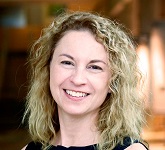
Dr. Kimberly A. Johnson
Dr. Kimberly A. Johnson began her tenure as Director of the Center for Substance Abuse Treatment (CSAT) at the Substance Abuse and Mental Health Services Administration (SAMHSA) in February 2016. Previously, Dr. Johnson was the Deputy Director for Operations of CHESS/NIATx, a research center at the University of Wisconsin, Madison that focuses on systems improvement in behavioral health and the development of mobile applications for patient self-management. Dr. Johnson was also co-director of the national coordinating office of the Addiction Technology Transfer Center.
Prior to her move to Wisconsin, Dr. Johnson served for seven years as the Director of the Office of Substance Abuse in Maine. Previous to that she served as Executive Director of Crossroads for Women, a women’s addiction treatment agency. She also managed community-based intervention and prevention programs and provided counseling for individuals and families as a child and family therapist.
Dr. Johnson’s contributions to the behavioral health field have earned her numerous awards – including the Federal DHHS Commissioner’s Award for Child Welfare Efforts and the National Association of State Alcohol and Drug Abuse Directors’ Recognition for Service to the field of Substance Abuse Treatment and Prevention. Dr. Johnson is a highly-regarded thought leader, who has authored a variety of publications on topics important to the addiction and recovery field, including e-health solutions for people with alcohol problems, using mobile phone technology to provide recovery support for women offenders, and new practices to increase access to and retention in addiction treatment. She is co-author of a book on the NIATx Model. Dr. Johnson has a master’s degree in counselor education, an MBA and a PhD in population health.
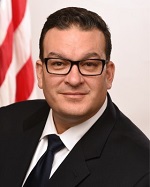
Rafael López
Nominated by President Obama and confirmed by the United States Senate, Rafael López is the Commissioner of the Administration on Children, Youth and Families (ACYF) at the U.S. Department of Health and Human Services.
López is a results driven leader with experience in helping lead complex organizations in the public and social sectors where he has served in numerous roles at the city, county and state level focused on improving the lives of children, families and communities. From 2013-2015, López served as a Senior Policy Advisor at the White House Office of Science and Technology Policy within the Executive Office of the President and with the Domestic Policy Council.
Prior to his service at the White House, López was an Associate Director at the Annie E. Casey Foundation, a private, national philanthropy devoted to developing a brighter future for millions of children at risk of poor educational, economic, social and health outcomes. Previously, López served as the President and CEO of The Family League of Baltimore City, Inc. where he was a member of the Baltimore City Mayor’s Cabinet. From 2006-2009, López was appointed by Mayor Antonio Villaraigosa to serve on his Cabinet as the Executive Director of the City of Los Angeles Commission for Children, Youth and Their Families. López previously served as the Deputy Director of the City and County of San Francisco Department of Children, Youth, and Their Families and as Senior Deputy for Health and Human Services for Los Angeles County Supervisor Gloria Molina. From 1999-2004, López served as the Founding Executive Director of First 5 Santa Cruz County where he launched the countywide implementation of the California Children and Families First Act-Proposition 10 and led innovative efforts to expand and create programs and services in health, school readiness, and family support including the creation of one of California’s first comprehensive health coverage programs for all Santa Cruz County children.

David Sheff
David Sheff is the author of Beautiful Boy: A Father’s Journey Through His Son’s Addiction and his latest, Clean: Overcoming Addiction and Ending America’s Greatest Tragedy.
Beautiful Boy is an award-winning, #1 New York Times bestseller that recounts Sheff’s harrowing struggle to help his son Nic overcome his methamphetamine addiction. Following its publication, Sheff met countless people struggling to prevent drug use and abuse and survive addiction – their own or a loved one’s. These encounters led Sheff on a ten-year mission to determine why America is losing its war against drugs and so many of its children in the process.
His search culminated with Clean, a myth-shattering look at drug use and treatment. Based on the latest research in psychology, neuroscience, and medicine, Clean‘s premise is that drug use is preventable and addiction is a preventable, treatable disease. Sheff rejects the stigmatization of drug use and calls for a new approach that treats use and addiction for what it is: a health crisis that is costing America $600 billion a year (in healthcare costs, crime, lost productivity, and more) and killing 350 people a day – more than any disease other than cancer and heart disease. This revolutionary work offers clear and cogent counsel for parents, schools, and communities, as well as addicts themselves.
David Sheff frequently speaks to schools, community groups, and conferences devoted to understanding mental health about effective methods to prevent drug use and abuse and about addiction on high school and college campuses. He argues that by addressing addiction, we take serious action against a host of other problems created and exacerbated by addiction, such as gun violence, domestic abuse, and any other mental illness-related issue. His ongoing research and reports on the science of addiction earned him a place on Time magazine’s list of the world’s most influential people.
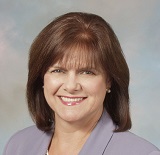
Dr. Nancy K. Young
Dr. Nancy K. Young is the Executive Director of Children and Family Futures (CFF), a California-based research and policy institute whose mission is to improve safety, permanency, well-being and recovery outcomes for children, parents and families affected by trauma, substance use and mental disorders. Since 2002, she has served as the Director of the federally-funded National Center on Substance Abuse and Child Welfare and has served as the Director of the Administration on Children and Families technical assistance program for the Regional Partnership Grants since 2007. Since 2010, Dr. Young has also served as the Director of the Office of Juvenile Justice and Delinquency Prevention’s technical assistance program for Family Drug Courts and has served as the Director of the Statewide System Reform Program since 2014. In 2013, she began serving as the Director of the foundation funded Prevention and Family Recovery Program. Dr. Young has been involved in numerous projects related to public policy analysis, strategic planning and program evaluation through her work with these programs and serving as a consultant to various states, counties, tribes, communities and foundations on behalf of the children, parents and families affected by substance use and mental disorders involved in the child welfare and judicial systems. Prior to founding Children and Family Futures in 1996, Dr. Young served as the research consultant to the Directorate of the State of California Department of Alcohol and Drug Programs.
Dr. Young is a graduate of California State University Fullerton and received her Masters of Social Work and her Ph.D. from the University of Southern California, School of Social Work. During her doctoral studies, she was the recipient of a pre-doctoral fellowship with the National Institute on Drug Abuse focusing on the public policy and research issues pertaining to children affected by parental substance use disorders. Dr. Young’s work and that of CFF has been recognized by the Federal Administration on Children and Families through the Outstanding Contractor of the Year award in 2006 and by a resolution issued by the Orange County Board of Supervisors in 2008. Dr. Young has also been recognized by the National Association of State Alcohol and Drug Abuse Directors as a recipient of the Robert E. Anderson Service Award in 2008 and the Women’s Service Champion Award in 2014. Dr. Young and her husband, Mr. Sidney Gardner, fostered and subsequently adopted two children who embody the policy and practice issues about which the work of Children and Family Futures is grounded.
Conference Schedule
Conference Schedule
Sunday, July 31
10:00 am – 1:00 pm
Sex Trafficking Training
11:00 am – 6:00 pm
Registration
12:00 pm – 6:00 pm
Pre-conference Institute
2:00 pm – 5:00 pm
Social Media Training
Monday, August 1
7:30 am – 6:00 pm
Registration
7:30 am – 8:00 pm
Exhibit Hall
7:30 am – 8:45 am
Breakfast in Exhibit Hall
9:00 am – 10:30 am
Opening Plenary
10:30 am
Break in Exhibit Hall
11:00 am – 12:30 pm
Super Sessions & Workshop Sessions
12:30 pm – 1:45 pm
Lunch
Exhibit Hall – Networking
2:00 pm – 3:30 pm
Super Sessions & Workshop Sessions
3:45 pm – 5:15 pm
Workshop Sessions
5:30 pm – 6:30 pm
CWLA Members Annual Meeting
6:30 pm – 8:00 pm
Opening Reception in Exhibit Hall
Tuesday, August 2
7:30 am – 5:00 pm
Registration
7:30 am – 5:30 pm
Exhibit Hall
8:30 am – 10:00 am
Super Sessions & Workshop Sessions
10:00 am
Break in Exhibit Hall
10:30 am – 12:00 pm
Super Sessions & Workshop Sessions
12:15 pm – 2:15 pm
Lunch Plenary
2:30 pm – 4:00 pm
Workshop Sessions
4:00 pm – 5:30 pm
Exhibit Hall – Networking
Wednesday, August 3
7:30 am – 4:00 pm
Registration
7:30 am – 11:00 am
Exhibit Hall
7:30 am – 9:00 am
Breakfast in Exhibit Hall
9:00am – 10:30 am
Workshop Sessions
10:30 am – 11:00 am
Break in Exhibit Hall
11:00 am – 12:15 pm
Ask the Experts Sessions
12:30 pm – 2:30 pm
Closing Lunch Plenary
3:00 pm – 6:00 pm
Post Conference Meetings

